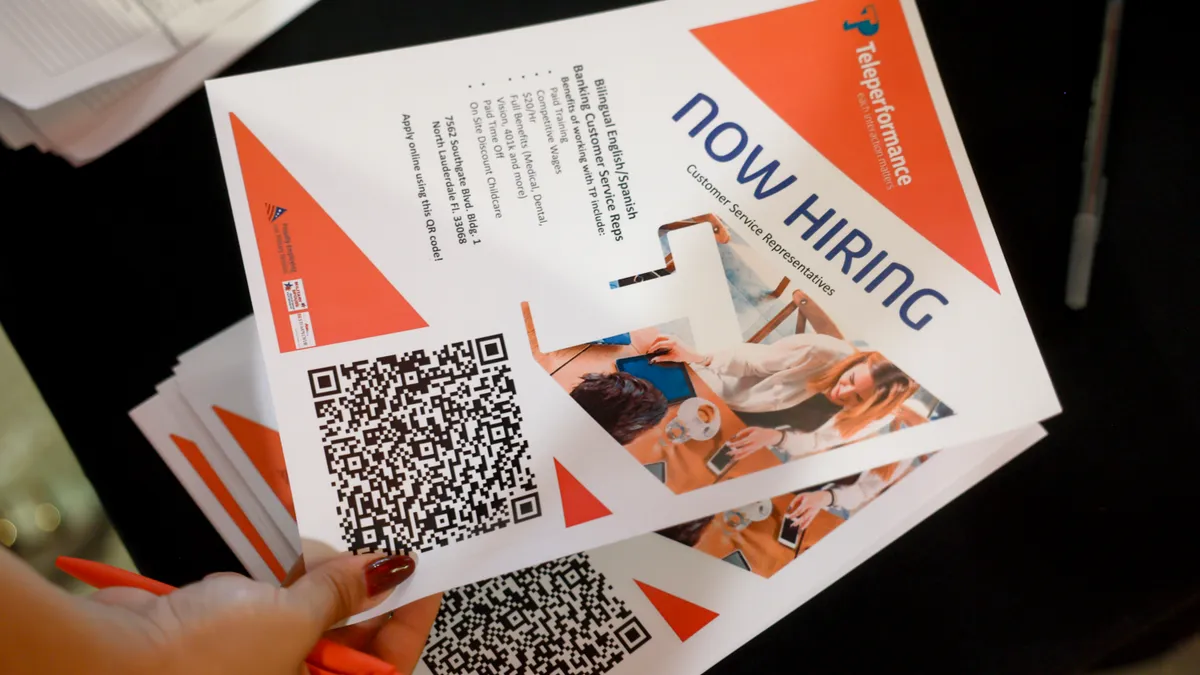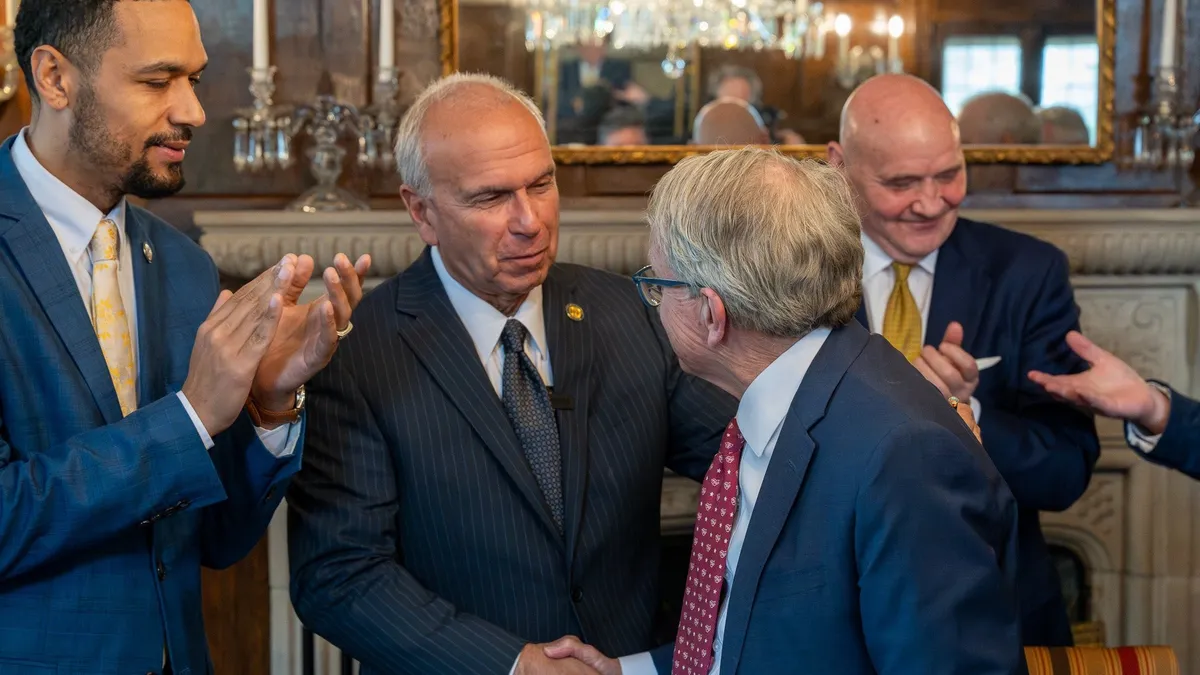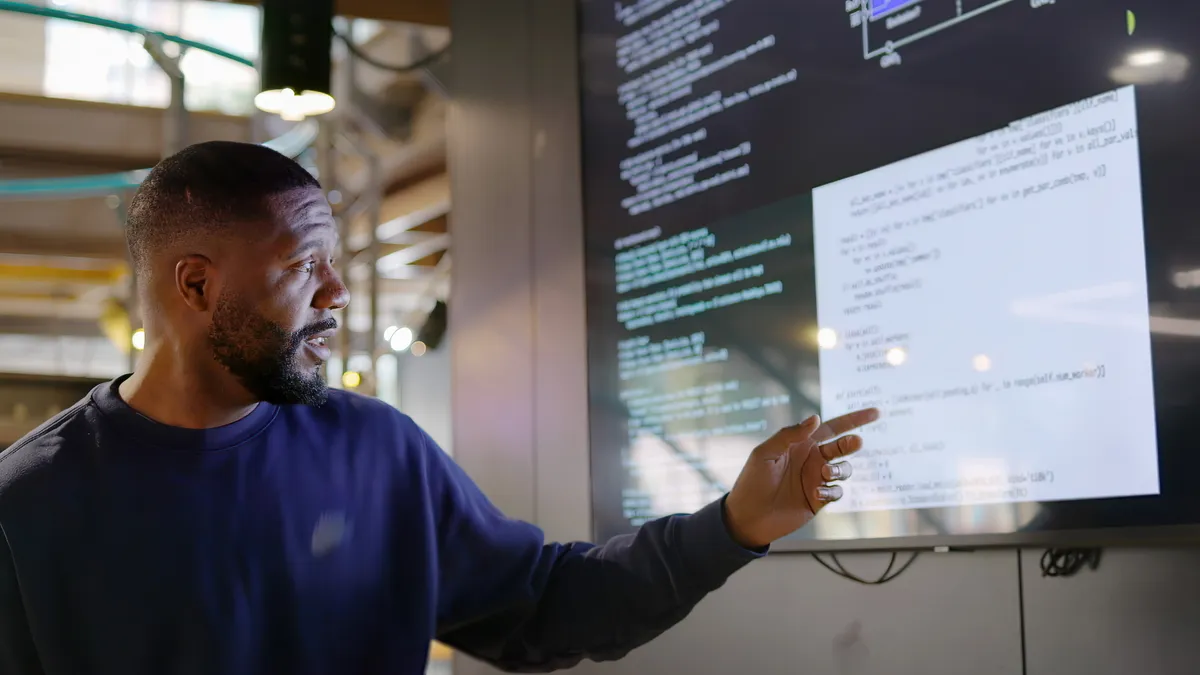Across the U.S., high school seniors will soon enter their final semester. Unfortunately, many of them won’t make it to the finish line. When local support programs struggle to meet demand, at-risk youth can fall through the cracks. But employers can help and, at the same time, boost outcomes for employees.
The success of corporate mentoring programs for underserved youth proves that private sector investment in education can help. Communities, education and the private sector often intersect. And by working together, the three can help to mentor and guide young people to pursue higher education and/or find meaningful careers, helping to ensure a solid foundation for their future, but also spurring commerce and building a society filled with citizens with the potential to contribute to its strength and sustainability.
There are also business benefits to those in the private sector who invest their corporate social responsibility (CSR) time and dollars in mentorship programs. Increased employee engagement, retention and productivity, as well as opportunities for team-building and leadership development are just a few. These outcomes have the ability to translate into bottom line value. In fact, according to Gallup’s research, companies with engaged workforces have higher earnings per share (EPS).
In recent years, the private sector has demonstrated that it can have a substantial impact on the youth mentoring movement: providing employee mentors, pushing forth innovative uses of new technology and curricula, providing much needed funding support and making the connection to a career path clearer for the nation’s youth. But in spite of these triumphs, there is more work to be done.
Some of the ways the private sector can continue to innovate and scale its support of youth mentoring include:
1. Fostering long-term engagement with youth. Companies invested in youth mentoring should explore ways to collaborate with community partners, schools and intermediaries. They can provide more stable, longer-term mentoring to youth. By delivering the right type of support at the critical points in young people’s lives, mentors can shape and refocus a young person’s academic journey. Bank of America, for example, encourages employees to volunteer in programs that serve from preschool to young adult – mentoring at all levels of the education system. They also invest in programs like Year Up, to support youth as they transition into the workforce.
Mentorship is especially important for underserved youth. At EY, our College MAP (Mentoring for Access and Persistence)connects volunteer mentors with groups of underserved local high school students to discuss the college application and admissions processes, affordability and potential career paths, encouraging students who might not have considered applying for college to do so. Nearly 100% of College MAP scholars have graduated high school, 90% of them have enrolled in college and 5% have enrolled in trade schools or the military.
For EY professionals, balancing work and a long-term mentoring commitment allows them to learn valuable leadership and professional skills. We’ve seen a direct correlation between our own employees’ community involvement and their progression and level of engagement at EY.
2. Facilitating increased peer learning and idea sharing among service providers and private sector organizations focused on mentoring. Technology has the power to connect us and many companies today are beginning to leverage that to convene and share ideas. By building online environments, or leveraging existing infrastructure, practitioners can not only use these tools to better support young people, but also build meaningful partnerships with internal and external constituents.
3. Investing in proven, evidence-based programming: One of the most promising shifts in public and private investment in social services is the move toward identifying the efficacy of program models and practices (including the impact of mentoring and educational programs). Policy initiatives, including the Corporation for National and Community Service-led Social Innovation Fund, are identifying new social programs and building evidence of success. As the research emerges, it will be important for the private sector to invest in these efforts and use this evidence to align their own programs with activities that generate the most societal impact.
In addition, other evidenced-based mentoring programs and initiatives are underway, including the implementation of a National Quality Mentoring System (NQMS). This program is being led by MENTOR, The National Mentoring Partnership, in an effort to standardize qualitative practices, training and support and assist the private sector in their efforts to build impactful programs.
There are also newer ways to think about investment in mentorship. Although in its infancy, many organizations are now exploring ideas such as social impact bonds and other “pay for performance” type initiatives. These activities have the potential to help the private sector engage with promising, newly emerging youth-servicing programs that are building evidence of impact.
4. Tell the story of youth mentoring: Corporations and businesses today have the resources and platforms to share their mentoring stories. This can be used not only to explain the business case to others in their sectors, but also to recruit other companies to do the same – and make an impact on lives. It’s incredibly important that the private sector uses its collective voice to bring ideas to life and bring quality mentoring to scale.
The pathway from high school to college and career has become far too perilous and unpredictable for many of the country’s youth. Too many of our young people are impacted by poverty and violence, too many of our students struggle to gain access to college, few persist in completing their education, and too many young people have trouble finding lasting, meaningful careers in our current economy. As we prepare to send our seventh cohort of College MAP high school graduates to college, we know they are better prepared for the journey ahead. But there are many more students in need of mentors than College MAP can support.
As companies in the private sector, we must continue to push ourselves to do more to nurture youth through these challenges – both personal and professional – and support their effort to join and contribute not only to the future workforce but to the strength of our nation.
Editor's note: This is a contributed piece by Carolina Dominguez, the College MAP National Program Manager at EY who oversees community engagement in education across the Americas.





















